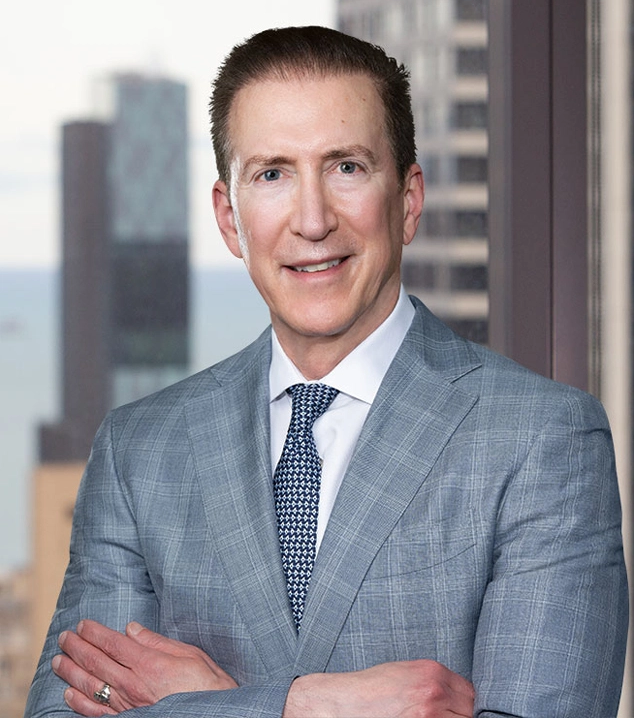Law firm Chapman and Cutler made it a priority to create a formalized firmwide ESG strategy that included third-party scoring and engagement with clients and other stakeholders
The growth of Environment, Social & Governance (ESG) benchmarks, scorecards, and frameworks was one of several ESG themes predicted for the legal industry in 2023. In fact, law firm Chapman and Cutler is making development of an ESG scorecard one of its top priority areas this year because the firm sees more inquiries from clients concerning the firm’s ESG policies and practices, according to William (Bill) Libit, the firm’s chief operating partner.
Chapman’s ESG program was one of the first of its kind when it was initiated in 2009, but it formalized and expanded over many years. The firm focused its commitment on environmental, sustainability, and green practices, including improving efficiency in office spaces (such as in lighting, energy use, etc.) to the extent possible, reducing paper usage and waste, as well as encouraging recycling and composting.
Today, the firm’s program is officially under the formal name Social Impact and Sustainability Task Force under the leadership of Libit, Chapman’s Sustainability Partner Kristin Parker, and a 21-member cross-section of intergenerational members from practice groups and administrative team members.
Formalizing the firm’s commitment to ESG
Chapman’s ESG program did not emerge externally in terms of its recruiting and retention efforts until 2014 when Libit was promoted to his COO role from his role as a practicing attorney with experience advising corporate boards and executive management on ESG issues. Over the next few years, Libit saw ESG emerging as a more mainstream topic that culminated in 2019 when The Business Roundtable (along with 181 CEO co-signatories) expanded the purpose of corporations to include delivering value to customers, investing in employees, dealing fairly with suppliers, and supporting the communities in which they operate.
To take the firm’s ESG strategy to a new level with a formal consultation of its stakeholders, Chapman hired an advisor in 2019 to conduct a review of the firm’s ESG policies and practices. This advisor also performed an audit of material issues from key stakeholders, which included the following:
Clients — The advisor conducted interviews with some clients to determine the important ESG topics they most cared about.
Community — The firm leaned on its former director of community relations, who previously had served as a local official and then as a state senator, to gather feedback from the local communities in which the firm operates.
Partners — To help solidify the support of the partnership, Libit and the team first earned the approval of the executive committee, which helped to eliminate resistance. In addition, senior firm management laid out how having the ESG program would help the firm and partners’ practices.
Employees — The firm maintained (and continues to maintain) a pulse on material issues of concern to its employees through the firm’s social impact task force, which is made up of intergenerational employees with a mix of lawyers and business professionals.
Once the firm gathered feedback from stakeholders and prioritized the issues, the firm made a decision to use the United Nations Global Compact (UNGC)’s framework from which to evaluate and report progress on the existing goals, align its future ESG commitments, and formally join the UNGC as one of a few of U.S.-based law firms adopting its framework.

This move helped Chapman further define its ESG strategy, including understanding deeply the current landscape of how professional services firms are responding to ESG issues and preparing the firm for the eventuality of scoring by a third-party ESG rating company.
Libit sees the biggest benefit of joining the UNGC being the unification of the firm’s goals using the Compact’s comprehensive platform. It provides a common framework and language in the form of sustainable development goals (SDG) to identify material issues from its stakeholder assessment. Some of these issues include:
-
-
- SDG 3-Good Health/Well-Being
- SDG 4-Quality Education
- SDG 5-Gender Equality
- SDG 6-Clean Water/Sanitation
- SDG 7-Affordable/Clean Energy
- SDG 9-Industry, Innovation/Infrastructure
- SDG 10-Reduced Inequalities
- SDG 12-Responsible Consumption/Production
- SDG 16-Peace/Justice/Strong Institutions
-
While the firm’s analysis did not include the creation of a formal materiality matrix, Chapman aligned its relevant work with clients and its priorities around its own strategic goals that focused on diversity, equity & inclusion (DEI), environmental, wellness, pro bono, governance, and community support. Libit also noted that adding to the business case for joining the UNGC, a number of the firm’s clients were already signatories of the UNGC.
Indeed, the firm’s participation in the UNGC is the most visible way to demonstrate its sustainability commitments both internally and externally. It is an effective framework for law firms because it is a widely known, recognized, and respected platform; and most, if not all, of the SDGs are achievable individually by law firms themselves, as well as through work with their own clients. In addition, the UNGC offers access to collaboration with a range of stakeholders to share best practices and emerging solutions with all participants.
On the horizon
By any measure, ESG is gaining traction and attention in the U.S., and Libit says that if his experience is any indication, law firms are already beginning to face the reality that client requests for information pertaining to ESG practices, policies, and other benchmarks are coming at an accelerated pace. Chapman desires more transparency from vendors to extend its impact and meet current and expected future reporting requirements, Libit explains, and this is the reason the firm, like its clients, is seeking to use its purchasing power to do good and adopt and update policies and practices to align with evolving industry practices and reporting requirements.







